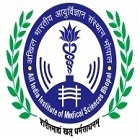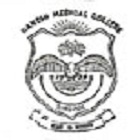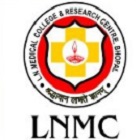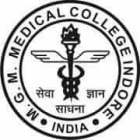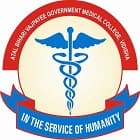Top M.B.B.S. Colleges in Bhopal
There are a total of 8 MBBS colleges in Bhopal. Out of these, 2 are government MBBS colleges, while 6 are private MBBS college. Even though the name suggests an integration of two courses, MBBS is just one course having a syllabus which covers surgical methodology and medicinal subjects. The course is divided into 9 semesters having surgery and medicine subjects. Below is the list of top MBBS colleges in Bhopal, Madhya Pradesh along with detailed information about fees, ranking, eligibility criteria, admission process, top recruiters in this field etc. The aim of this article is to provide in-depth knowledge of undergraduate MBBS courses and give a list of the best colleges in Bhopal.
MBBS Colleges in Bhopal: Eligibility Criteria
MBBS is an undergraduate degree course which can be pursued only after qualifying higher secondary examination with compulsory subjects like physics, chemistry, and biology. The minimum score required is 50% in 12th grade for students belonging to the general category. For candidates belonging to reserved category the minimum score required is 40%. The upper age limit for pursuing MBBS is 25 years in some colleges. Apart from these, in order to seek admission in MBBS course candidates must crack the required entrance exam which is mainly NEET. Some colleges take separate entrance exams for short listing students.
MBBS Colleges in Bhopal: Admission Process
In India, only NEET UG entrance exam is considered for seeking admission in any college offering an MBBS degree. Hence MBBS aspirants have to make sure to score good in this exam.
Admission in MD/MS/DNB/DIPLOMA can be done by appearing for NEET PG. However, in order to pursue PHD in medicine aspirants have to crack the All India Entrance Examination and personal interviews conducted by the colleges. Candidates have to submit their research proposal which is a pre PHD course of 6 months.
MBBS Colleges in Bhopal: List of Colleges in Bhopal offering MBBS Course
Name of the college | Careers360 rating | Acceptable test | Fees |
60th in Medical | NEET | Rs. 5.65 lakhs | |
__ | NEET | Rs. 42.08 lakhs | |
__ | NEET | Rs. 42.10 lakhs | |
__ | NEET | __ | |
__ | NEET | Rs. 6.63 lakhs | |
__ | NEET | Rs. 50.20 lakhs |
Career Options for MBBS Graduates and Expected Salary
Candidates having MBBS degree can be employed by various institutes such as Hospitals, Nursing Homes, Laboratories, Medical Colleges, Biomedical Companies, Health Centers, Personal Clinic, Research Laboratories, Biotechnology Companies, Pharmaceutical Companies etc. With an MD degree, candidates can take up the following job. However, with an MS degree, candidates are professional surgeons who can perform various types of surgeries and implantations.
Career option | Average salary |
Rs. 1.00 – 2.00 lakhs per month | |
Rs. 1.50 – 2.00 lakhs per month | |
Rs. 1.50 – 2.50 lakhs per month | |
Rs. 1.00 – 2.50 lakhs per month | |
Rs. 1.50 – 2.00 lakhs per month | |
Researcher | Rs. 0.40 – 0.80 lakhs per month |
Rs. 0.60 – 1.80 lakhs per month | |
Junior Surgeon | Rs. 0.35 – 2.00 lakhs per month |
Junior Doctor | Rs. 0.50 – 1.25 lakh per month |
Top Recruiters for MBBS Graduates
Psalm Consultancy
People’s Alliance WorkForce Ltd
Global Tech Serve
Life Care Hospital
White Orange Consultancy
Fortis Healthcare Ltd
Medanta Hospitals
All India Institute Of Medical Sciences
Sun Pharmaceutical Industries Ltd
Sri Ganga Ram Hospital
Apollo Munich Health Industries Co Ltd
Lilavati Hospital And Research Centre
Apollo Hospitals Enterprises Ltd
Wockhardt Ltd
Postgraduate Institute Of Medical Education And Research
Religare Health Insurance Company Ltd
Cipla Ltd
Indraprastha Apollo Hospitals
FAQs
What is the difference between MD and MS?
A: MD is Doctor of medicine and MS is Master of Surgery. Latter deals with tools and equipment for treatment and former deals with medicine for diagnosis and treatment of diseases.
Is it better to study MBBS or BAMS?
A: It solely depends on the candidate. The fee of BAMS is lesser than the fees for MBBS. While speaking of the difficulty level both the courses are more or less the same. They both require research and analysis. BAMS is related to Ayurveda, whereas MBBS is closely associated with modern medicine.
How much is the average fee per year to study MBBS?
A: Fees differ from college to college. Average fees could be around 1 lakh to 15 lakhs per year.
What is the difference between NEET UG and NEET PG?
A: for admission in MBBS course one has to appear for NEET UG and for admission in MD/MS/ DIPLOMA courses one has to crack NEET PG. So NEET UG is an entrance for undergraduate medical courses and NEET PG is for postgraduate medical courses.
How much is the average salary of a MBBS graduate?
A: Salary depends on the type of job that the graduate takes up. However, average salary ranges from Rs. 40k- 2 lakhs per month.
Do MBBS colleges offer scholarships?
A: MBBS degree requires a lot of investment in finance. However, SEMCI India and Students' Unity Foundation of India organizes Nationwide Education and Scholarship Test in order to provide the scholarships for medical aspirants. There is no accurate information about colleges offering scholarships. There are a number of organizations which provide scholarships on a merit basis in order to provide financial assistance to medical aspirants.
Is it possible to do MD/MS without an MBBS degree?
A: MD/MS are post graduate courses and can be taken up only after MBBS or other equivalent degree.
Can we do a diploma course in medicine after 10th grade?
A: Diploma courses in medicine are post graduate courses and can be pursued only after MBBS or other equivalent degree. It cannot be done immediately after 10th or 12th.
How much time does a PhD in medicine take?
A: PhD in medicine takes around 3-5 years. Candidates have to submit their research proposal during the pre-PhD course of 6 months.
How much marks are required in NEET for seeking admission in MBBS course?
A: Aspirants should aim to secure more than 600 marks out of 720 in order to seek admission in government colleges offering MBBS course. Besides, for private colleges it is better to score more than 400 to secure your seat in a good college.
AIIMS Bhopal - All India Institute of Medical Sciences Bhopal
NIRF Ranking:
25Careers360
: 9- Exams: NEET
- Fees : ₹6.79 K
- M.D. (21 Courses)
Gandhi Medical College, Bhopal
CMCH Bhopal - Chirayu Medical College and Hospital, Bhainsakhedi
Ownership:
Bhopal, Madhya Pradesh
CMCH Bhopal - Chirayu Medical College and Hospital, Bhainsakhedi
Ownership:
Bhopal, Madhya Pradesh
- Exams: NEET
- Fees : ₹74.92 Lakhs
- M.D. (15 Courses)
LN Medical College and JK Hospital, Bhopal
Mahaveer Institute of Medical Sciences and Research, Bhopal
Ownership:
Bhopal, Madhya Pradesh
Mahaveer Institute of Medical Sciences and Research, Bhopal
Ownership:
Bhopal, Madhya Pradesh
People's College of Medical Sciences and Research Centre, Bhopal
- Exams: NEET
- Fees : ₹78.08 Lakhs
- M.D. (16 Courses)
Ram Krishna College Hospital and Research Centre, Bhopal
Ownership:
Bhopal, Madhya Pradesh
Ram Krishna College Hospital and Research Centre, Bhopal
Ownership:
Bhopal, Madhya Pradesh
RKDF Medical College Hospital and Research Centre, Bhopal
Ownership:
Bhopal, Madhya Pradesh
RKDF Medical College Hospital and Research Centre, Bhopal
Ownership:
Bhopal, Madhya Pradesh
- Exams: NEET
- M.D. (15 Courses)
MGMMC Indore - Mahatma Gandhi Memorial Medical College, Indore
Careers360
: 46- Exams: NEET
- Fees : ₹4.68 Lakhs
- M.D. (17 Courses)
Amaltas Institute of Medical Sciences, Dewas
- Exams: NEET
- Fees : ₹74.92 Lakhs
- M.D. (9 Courses)
Atal Bihari Vajpayee Government Medical College, Vidisha

Birsa Munda Government Medical College, Shahdol
Ownership:
Shahdol, Madhya Pradesh
Birsa Munda Government Medical College, Shahdol
Ownership:
Shahdol, Madhya Pradesh
- Exams: NEET
- Fees : ₹4.50 Lakhs
- M.D. (2 Courses)
Bundelkhand Medical College, Sagar
Chhindwara Institute of Medical Sciences, Chhindwara
Ownership:
Chhindwara, Madhya Pradesh
Chhindwara Institute of Medical Sciences, Chhindwara
Ownership:
Chhindwara, Madhya Pradesh
ESIC Medical College and Hospital, Indore
Ownership:
Indore, Madhya Pradesh
ESIC Medical College and Hospital, Indore
Ownership:
Indore, Madhya Pradesh

Gajra Raja Medical College, Gwalior
- Exams: NEET
- Fees : ₹4.50 Lakhs
- M.D. (15 Courses)
Government Medical College, Datia
GMC Ratlam - Government Medical College, Ratlam
Ownership:
Ratlam, Madhya Pradesh
GMC Ratlam - Government Medical College, Ratlam
Ownership:
Ratlam, Madhya Pradesh
- Exams: NEET
- M.D. (13 Courses)

Government Medical College, Sheopur
Ownership:
Sheopur, Madhya Pradesh
Government Medical College, Sheopur
Ownership:
Sheopur, Madhya Pradesh
- Fees : ₹4 Lakhs
Government Medical College, Singrauli
Ownership:
Singrauli, Madhya Pradesh
Government Medical College, Singrauli
Ownership:
Singrauli, Madhya Pradesh
Index Medical College Hospital and Research Centre, Indore

LNCT Medical College and Sewakunj Hospital, Indore
Mansarovar Medical College and MGU Hospital, Sehore
Ownership:
Sehore, Madhya Pradesh
Mansarovar Medical College and MGU Hospital, Sehore
Ownership:
Sehore, Madhya Pradesh
- Fees : ₹76.28 Lakhs
GMC Khandwa - Nandkumar Singh Chouhan Government Medical College, Khandwa
Ownership:
Khandwa, Madhya Pradesh
GMC Khandwa - Nandkumar Singh Chouhan Government Medical College, Khandwa
Ownership:
Khandwa, Madhya Pradesh
- Exams: NEET
- Fees : ₹4.50 Lakhs
- M.D. (6 Courses)
NSCBMC Jabalpur - Netaji Subhash Chandra Bose Medical College and Hospital, Jabalpur

RDGMC Ujjain - Ruxmaniben Deepchand Gardi Medical College, Ujjain
Shrimant Rajmata Vijayaraje Scindia Medical College, Shivpuri
Ownership:
Shivpuri, Madhya Pradesh
Shrimant Rajmata Vijayaraje Scindia Medical College, Shivpuri
Ownership:
Shivpuri, Madhya Pradesh
- Exams: NEET
- Fees : ₹4.50 Lakhs
- M.D. (6 Courses)
Shyam Shah Medical College, Rewa
- Exams: NEET
- Fees : ₹5.00 Lakhs
- M.D. (15 Courses)

